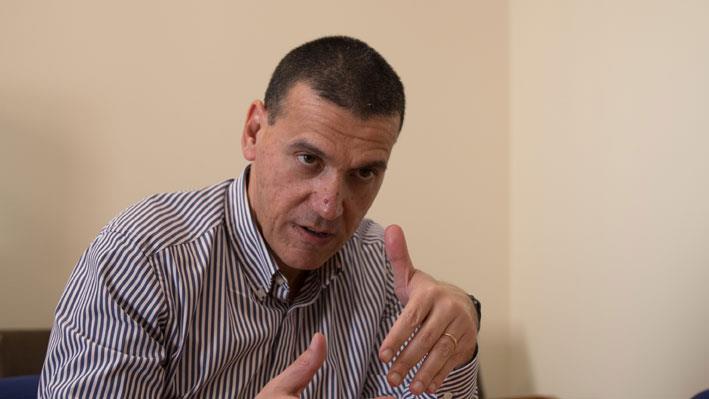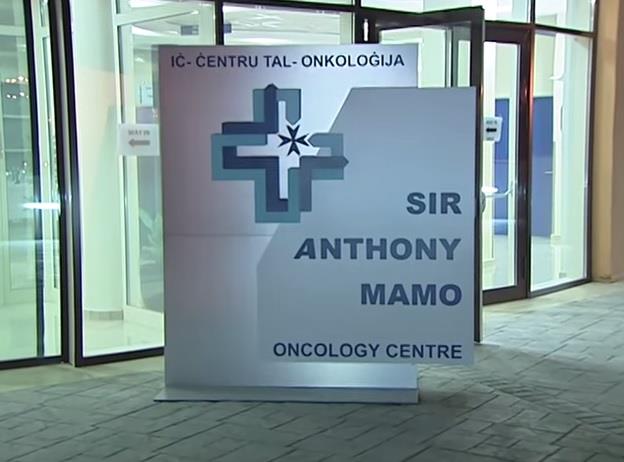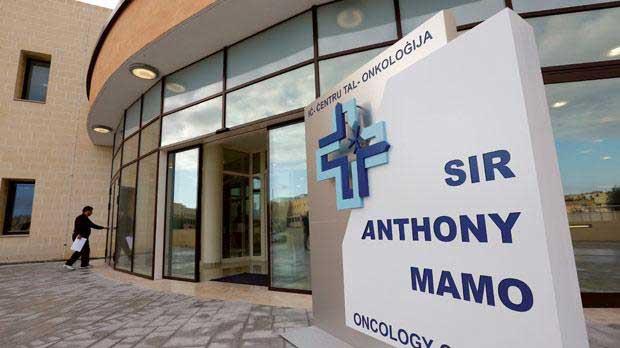What is a patient’s first point of contact with the Oncology Centre?
I think that before then, the diagnosis process is important because there is a lot of anxiety for the patient at that point.
Even though most doctors reassure their patients, I think the patient already has some sort of an idea about what is going on. There will already have been a wait between, for example, having a biopsy taken or a PET scan and being given the result of the procedure.
This is already a very difficult time for the patient, and I’m saying this because I think the biggest problem in all this is what the patient feels and how difficult it is for him or her to process what they are being told.
Breaking bad news is probably one of the most difficult stages in the journey, and we try to give it as much time as possible. Generally speaking, the oncologists don’t give the diagnoses themselves, so when a patient comes to the Oncology Centre he or she will already have had the diagnosis.
When they come here, some people are already totally clued in, and then you have the people who are completely unaware. Usually, that is the first point of contact with this department.
The patient then comes to the point of what therapy – radiotherapy or chemotherapy – has been decided. Both modalities of therapy have their own group of nurses who are specialised in their particular field.
We try to arrange for the patients to meet the nurses before they come to chemotherapy; there is a group of people in a group called ‘Aurora’ who will meet them and explain to them what chemotherapy they are going to have, what the side effects will be, how long it will take and what they have to avoid.
We try to arrange for that date before the patient begins the chemotherapy, and we try to do the same with radiotherapy.
There is always a gap between the new case appointment and the procedure.

Do the doctors and nurses get specialised training?
The doctors are trained in their specialties; for example, my specialty is haematology. We currently have nine doctors – four haematologists and five oncologists – but it’s not enough.
For our population, the Royal College for Radiotherapy issues a guideline that each oncologist should see around 200 new cases a year. With five people and 2,000 cases the maths doesn’t work out!
With the nurses it’s slightly different. They acquire a lot of their expertise while they’re working in the area. You need a particular set of skills here, as the patients need a different kind of care.
If you speak to patients they will tell you that their experience here is different to the experience in Mater Dei, also because in Mater Dei you meet the patient for maximum of a week and then you don’t see him or her again.
Here we see the patient every week for as long as they need to come, so the relationship is different.
I would like to see more specialisation in the nurses; more opportunities – which a number of them have taken on in the form of Master’s Degree, but this is something that is done on an individual basis.

Does the family play a role in this area?
The family has a central role in all of this: it is literally part and parcel of what we do here.
The psychological support that they give, and the lifting of the mood – it makes the patient able to face the treatment in a better frame of mind.
If a patient comes to Aurora for information regarding chemotherapy or radiotherapy, the relatives are invited to come as well. We try to include the relatives as much as possible – even in the palliative part.

Tell me about training for palliative care.
While you’re talking to the person you feel what is going on, and you modify the message according to what that person is feeling.
There are skills that one can learn as well: how to get the message across, what language to use, what environment to use...
Palliative care is probably the least resourced in terms of medical manpower.
We have a ward with 16 beds and we only deal with palliative cases in oncology.
Palliation should be opened up with other intractable conditions such as respiratory and renal conditions.
At present, we are only offering these services in the hospital and there is a huge need for them in the community. We should be providing people with the freedom to receive palliation in your home, surrounded by your family.

Do you find that some individuals choose not to undergo treatment?
Yes, but not very often. You tend to find people who are more discerning – specifically with regard to survival rates and side effects. When you give them the average length of time, you quote the average, but in reality its a range: for example 15 days to five years, but the median is six months.
It’s a very difficult decision, even if you provide all the information you can by quoting the latest literature.
In Malta, people tend to trust medical staff more than other places – they leave medical decisions up to the doctor more often.
Are people encouraged to celebrate in the festive season?
There is a successful attempt to decorate the area; the staff themselves feel a little bit lighter as do many others.
A lot of people – such as the President – also come to visit and a few people come to sing carols as well.
On Christmas Day the Centre is a bit more active as food is brought in, along with other things. And we also try to send as many people as possible home for the day – that is the effort that is, I think, somewhat low-key. It happens every Christmas: it just happens.
I think it’s harder on the families, although they do tend to try to bring their relatives home at Christmas if they are particularly unwell.